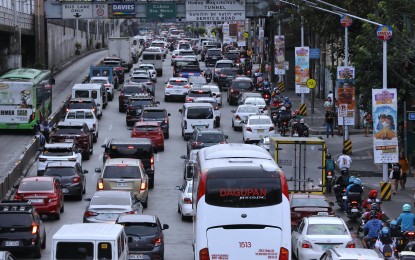
(File photo)
MANILA – An effective and efficient public transport system is vital in addressing traffic congestion in the country, President Ferdinand R. Marcos Jr. said on Tuesday.
In an exclusive interview with GMA News aired over 24 Oras, Marcos said the government is looking for ways to ease commuters’ woes, including the development of Pasig River Ferry stations.
Marcos said informal settlers who will be affected by the government’s plan will be relocated.
“There is a plan already. Nakapag-identify na kami sa Pasig River. Nakapag-identify na kami 'yung tinatawag na transition areas where magtatayo tayo ng temporary lodging para ‘yung settler, sila ngayon ilalagay muna doon habang tinatayo ‘yung kanilang housing (We have been able to identify areas in the Pasig River. We have identified the so-called transition areas where we will build temporary lodging for the settlers. They will now be placed there while their houses are being built). In the end, the plan is for them to have all the housing,” he said.
Marcos said heavy traffic could not be avoided.
He also explained that he has to take a chopper ride if there is a traffic congestion to “maximize [his] time.”
He added that he doesn't want to be the cause of congested traffic, as much as possible.
“Nakakahiya nga kung minsan eh (I feel embarrassed sometimes) because when I go, everybody has to stop, everybody has to, so I try as little as possible to cause traffic and then of course, yes, I am trying to maximize my time,” Marcos said.
During the inauguration of the showcase area of the Pasig River Urban Development Project in Manila on Jan. 17, Marcos said the government would come up with “new and fresh” ideas to ensure the success of the project.
The "Pasig Bigyang Buhay Muli" urban development project aims to transform the Pasig River into a center of economic activity, tourism and promote transportation connectivity in Metro Manila and adjacent provinces. (PNA)
